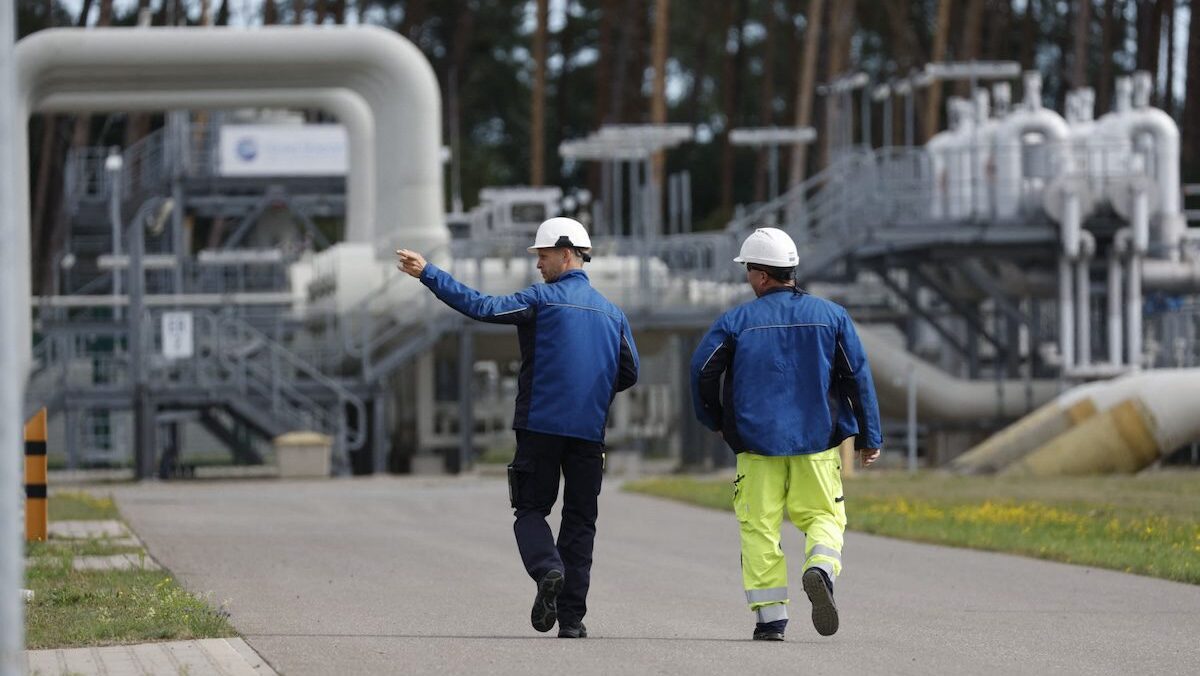
Workers walk past facilities to receive and distribute natural gas on the grounds of gas transport and pipeline network operator Gascade in Lubmin, northeastern Germany, close to the border with Poland, on August 30, 2022.
Photo: Odd ANDERSEN / AFP
The German parliament is set to vote on Friday, December 20th, to abolish a gas transit fee that has increased costs for many Central European states in recent years.
Despite the German government’s inability to push through any major laws after its recent collapse, opposition leader and head of the centre-right CDU party Friedrich Merz is willing to help the cabinet abolish the levy in order to maintain good relations with neighbours Austria and the Czech Republic—both of whom are co-governed by parties of the European People’s Party (EPP), of which CDU is a member, too.
Germany introduced the transit fee in 2022 to cover the high costs of the European energy crisis that arose following Russia’s invasion of Ukraine, EU sanctions on Russia, and Moscow’s reduced gas deliveries to Europe.
Austria, the Czech Republic, Hungary, and Slovakia have borne the brunt of the levy, and have urged Germany to scrap the tariff it charges these countries to buy gas from its reserves. They complained to the European Commission earlier this year that they should not pay, because the measure undermines the EU’s single market, which lets goods move freely across borders.
While the EU has imposed sanctions on a range of Russian energy imports, it has excluded Russian gas, because many Central European states rely on it. EU member countries have been trying to diversify their energy supplies since the outbreak of the Russian-Ukrainian war in a bid to reduce their dependence on Russia, but the German transit fee has not helped their cause.
In a joint letter last week, the governments of Bratislava, Prague, and Vienna said the abolition of the levy was all the more urgent, given that a Russian deal to supply gas to Europe via Ukraine will expire at the end of the year. “It is imperative to remove all the barriers standing in the way of our diversification efforts,” the joint paper said, describing the levy as an “artificial increase” in prices that was hindering the countries’ efforts to quit Russian gas.
Both Ukraine and the EU are adamant about ending the deal that enables Russian gas to transit through Ukraine’s territory to Europe. “Ukraine’s agreement with Russia on gas transit comes to an end on 1st January 2025 and will not be extended,” Ukrainian Prime Minister Denys Shmyhal said on Monday after speaking to Slovakian prime minister Robert Fico.
Slovakia has a long-term contract with Russian giant Gazprom, and Fico has stressed that maintaining gas transit is not just a bilateral matter for Ukraine’s neighbours but an issue for the whole EU. Meanwhile, Hungary has said it is unaffected by the end of the transit deal, as it has been able to secure an alternative source: the Turkish Stream pipeline, which carries Russian gas via the Black Sea to Turkey.
